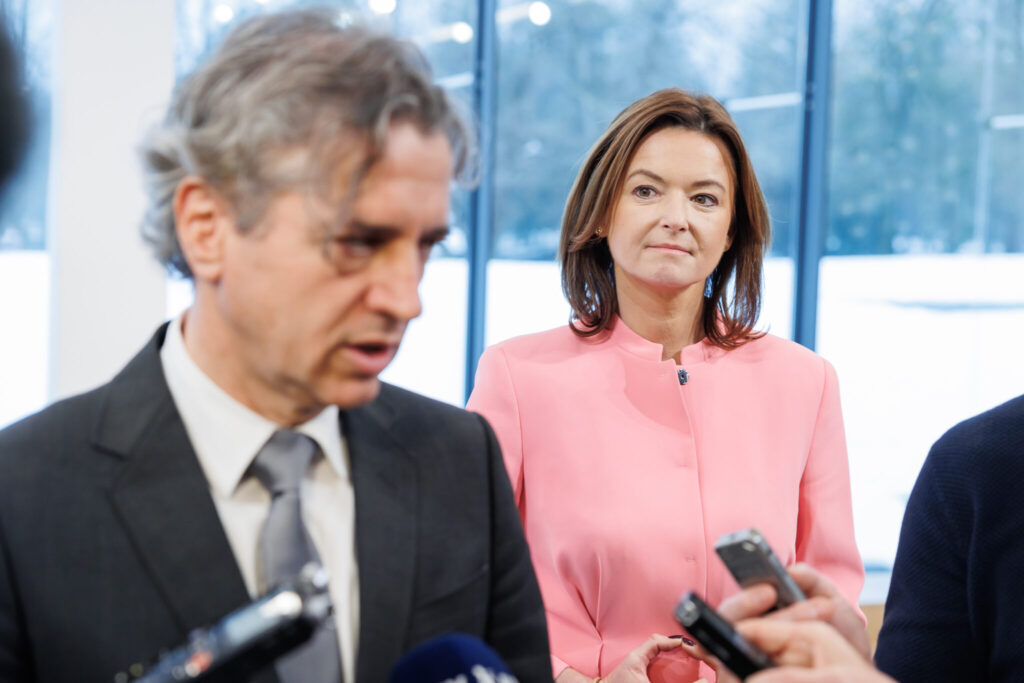Slovenia is in the midst of a historically important moment, when the international situation calls for a clearer, more sovereign and more deliberate foreign policy stance. On the occasion of the launch of the print edition of the book “Consensus for a Historic Moment” (“Soglasje za zgodovinski trenutek”), which is the work of 74 authors, some of them addressed an open letter to the Slovenian government. In it, they draw attention to the alarming situation in the international community and to Slovenia’s insufficient and often confused response to it.
The authors of the letter, including Dimitrij Rupel, Peter Jambrek, Ernest Petrič, Alenka Puhar, Ivan Štuhec, Žiga Turk and Tomaž Zalaznik, point out that Slovenia was once able to set out a clear foreign policy: from the decision for independence, to managing relations with Europe past Belgrade, to constructive engagement in international organisations such as the United Nations, NATO and the European Union.
In the years since our country gained its independence, this vision has strengthened Slovenia’s reputation and role as a responsible member of the international community. In recent years, however, Slovenia has lost this position – mainly due to foreign policy inconsistency, ideological blindness and lack of a long-term strategy.
The world is changing – but Slovenia has no clear position
The letter warns that the world is changing dramatically. Under President Donald Trump, the USA is no longer the undisputed guarantor of European security, and many of his criticisms of Europe’s passivity in defence are not without foundation. At the same time, the world is convulsed by conflicts from Ukraine to Gaza to Iran, with Slovenia often absent from serious discussions or reacting inappropriately and irresponsibly.
“Slovenia is shyly joining the already shy policy of the European Union, whose honour – with the help of the excellent High Representative for Foreign Affairs and Security Policy, Kaja Kallas – is being saved by the Macron-Merz-Starmer-Tusk ‘directors’. It seems that, although the main players on the planet are outside Europe: in Moscow, Beijing and Washington, the Europeans are doing their best not to be completely sidelined. Between the two political offers of democracy and autocracy, the latter is winning. Slovenia has no particular influence or role to play in all this, often making ignorant and barely comprehensible gestures, but such a situation – at least in the future – is not inevitable.”
The part of the letter criticising Slovenia’s recognition of Palestine as an independent state is particularly harsh. According to the signatories, this is an ill-considered and harmful decision which completely ignores the reality of terrorism, represented by groups such as Hamas, Hezbollah and others. They also point out that at the time of independence, Israel supported Slovenia’s right to self-determination – solidarity should, therefore, be mutual.
The EU faces its biggest challenge
The EU is discussing abolishing unanimous decision-making, which would deprive small countries like Slovenia of their influence. The authors of the letter warn that the only realistic and sustainable way forward is to work towards consensus – not only within the EU, but also within groups of countries that share similar views and values. They suggest that Slovenia should focus on strengthening ties with the countries of Central Europe and the Baltics, and seek a base there to develop common positions that will be better heard and more influential in the EU.
“As we have written in the title of our new book, European consensus must be pursued (vigorously, without delay and with all diplomatic means). Instead of engaging in controversy and high-flying rhetoric, Slovenia could contribute to European politics. We need to create a like-minded group of countries, perhaps in the circle of Central European and Baltic countries. In this complex society, Slovenia can only assert itself with originality and ingenuity, with diplomatic experience and precise concepts; but the unified position of such a group would carry more weight in the wider European context than a single Slovenian position.”
“International tensions and wars are fast approaching Central Europe, especially Slovenia and Croatia, which border the Russian-coveted Balkans. It seems that the EU should or will postpone further enlargement. Balkan enlargement, despite general support in Slovenia, cannot benefit from a Slovenian member of the European Commission who was – as is well-documented – a confidant of the secret political police in Yugoslavian times, which is a fact she has denied even in hearings in the Slovenian and European parliaments.”
What should the Slovenian government do?
The letter to the government not only criticises, but also offers a clear initiative: to stimulate a broader, professional and strategic debate on the future of Slovenian foreign policy. We need a policy based on historical memory, strategic reflection, moral clarity and responsibility towards our own statehood.
At a time when the international order is under question, Slovenia must find its role again – not as a timid bystander, but as a wise and reliable partner in the defence of democratic values.
Sara Kovač


